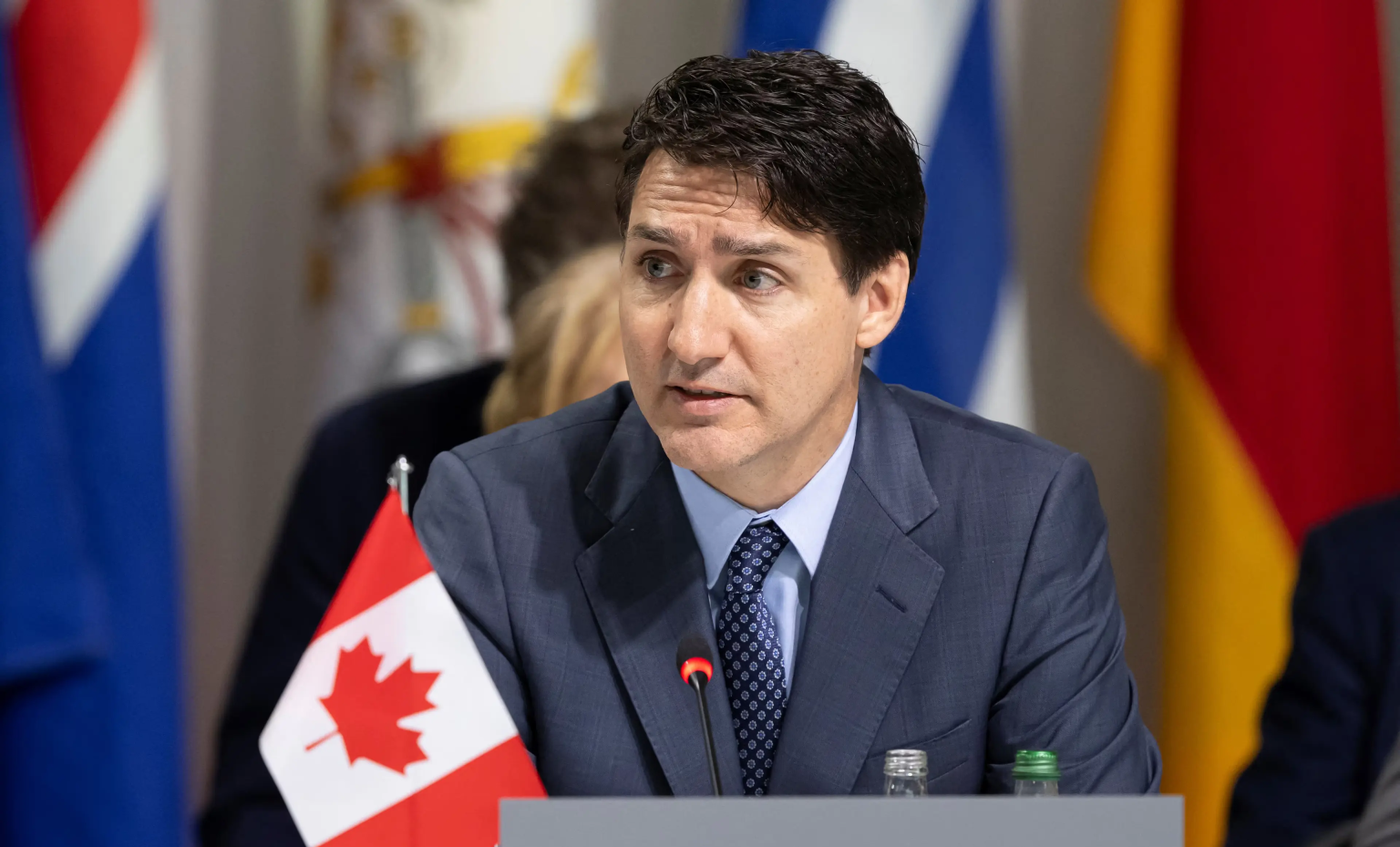Canadian Prime Minister Justin Trudeau is expected to announce his resignation as early as Monday, marking a potential turning point for the ruling Liberal Party. Reports from The Globe and Mail and other Canadian media suggest Trudeau may step down ahead of a crucial national caucus meeting scheduled for Wednesday.
The anticipated resignation comes amid declining public approval, internal party challenges, and an upcoming national election in October. Trudeau, who has served as Liberal Party leader since 2013 and Prime Minister since 2015, now faces mounting pressure from within his party to pass the torch.
Is Justin Trudeau Resigning?
Speculation over Trudeau’s resignation has gained traction, with three sources confirming the likelihood of an announcement in the coming days. While his office has not released an official statement, party insiders suggest that Trudeau intends to step down to prevent the appearance of being ousted by his caucus.

The move would leave the Liberal Party without a leader as it prepares for a high-stakes election. Polls currently show the Conservatives, led by Pierre Poilievre, holding a significant advantage over the Liberals, making a leadership transition all the more urgent.
Why Is Trudeau Resigning?
Several factors have contributed to Trudeau’s reported decision to resign:
1. Plummeting Approval Ratings
Trudeau’s popularity has sharply declined in recent years. A December poll by Angus Reid revealed that 68% of Canadians disapprove of his leadership, with only 28% expressing support. Widespread concerns about housing affordability, high inflation, and economic stagnation have fueled public dissatisfaction.
2. Internal Party Pressure
The resignation of Finance Minister Chrystia Freeland in December has further destabilized Trudeau’s leadership. Freeland, a longtime ally, cited policy disagreements with the Prime Minister in her resignation letter, calling for a more disciplined approach to Canada’s economic challenges. Her departure emboldened other Liberal MPs, many of whom have called for new leadership to improve the party’s standing ahead of the election.
3. Controversies and Public Criticism
Trudeau’s actions have drawn increasing scrutiny. In November, he attended a Taylor Swift concert in Toronto while violent protests erupted in Montreal, prompting criticism from political opponents. Conservative MP Don Stewart condemned Trudeau’s priorities, accusing him of neglecting the needs of Canadians during times of crisis.
4. Looming National Election
With an election scheduled for October, the Liberal Party faces mounting pressure to regain voter confidence. Trudeau’s resignation could allow for a fresh leader to rally the party and redefine its platform.
Who Will Be The Next Leader of the Liberal Party?
If Trudeau announces his resignation, the Liberal Party will need to act swiftly to select a new leader. Two potential paths include appointing an interim leader or holding a leadership contest.
Leadership Candidates
Possible contenders for the leadership include:
- Chrystia Freeland: Former Finance Minister and Deputy Prime Minister
- Dominic LeBlanc: Current Intergovernmental Affairs Minister
- Mélanie Joly: Foreign Affairs Minister
- François-Philippe Champagne: Innovation Minister
- Mark Carney: Former Governor of the Bank of Canada
Party insiders note that a leadership race could take several months, potentially complicating election preparations. Meanwhile, an interim leader could stabilize the party while a permanent successor is chosen.
What Trudeau’s Resignation Means for Canada
Trudeau’s potential departure would mark the end of an era in Canadian politics. For the Liberal Party, it represents an opportunity to reset and rebuild ahead of the October election. However, it also poses risks, as the party will need to act quickly to establish a new leader and platform to counter the surging popularity of the Conservatives.
For Canadians, Trudeau’s resignation could signal a shift in political priorities and leadership style, as the country grapples with economic challenges and social divisions.
As speculation continues, all eyes are on Trudeau and the Liberal Party to see how they navigate this critical moment in Canadian history.


